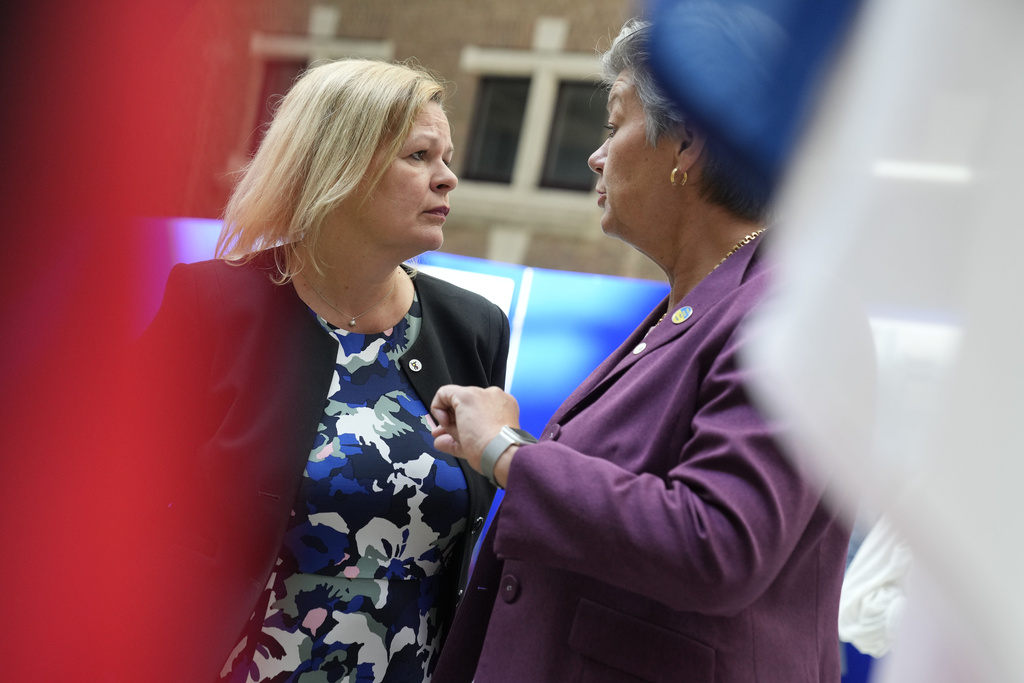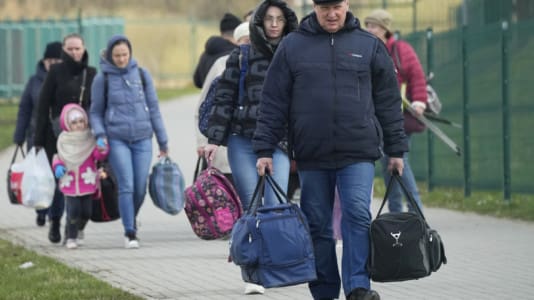The battle over the right to cash is heating up in Germany, with German Interior Minister Nancy Faeser pushing for an upper limit for cash transactions well below €10,000. While she is connecting the issue to the fight against organized crime, conservatives and other activists warn that the government is slowly eroding the ability of citizens to make cash transactions, which could set the stage for mass surveillance and restrictions on what citizens can buy and sell.
According to Faeser, purchases of expensive jewelry and watches with cash should be a thing of the past in order to fight organized crime.
“I am concerned with breaking up criminal structures and consistently depriving them of criminal income,” she told the Tagesspiegel newspaper, as cited by Welt.
For example, “property structures must become more transparent,” she said.
[pp id=79187]
Faeser, an interior minister who has claimed that right-wing extremists are the biggest threat facing Germany, belongs to the ruling Social Democrats (SPD). However, members from the Liberals (FDP), which are a part of the coalition government with the SPD, are already criticizing Faeser’s focus on reducing the cash limit.
FDP deputy parliamentary group leader Konstantin Kuhle said that “concerns about organized crime must not be used to enter into mass surveillance of citizens.”

The German government is expected to face stiff resistance in its efforts to lower the cash transaction threshold. Critics see it as an attempt to slowly lower the limit on the path towards phasing out cash altogether.
The Alternative for Germany (AfD) wrote on Twitter: “The required cash upper limits are getting lower and lower from the traffic-light government. AfD, on the other hand, demands in its basic program the unrestricted retention of cash, because cash is freedom and protects against a surveillance state.”
Would restrictions on cash actually help fight organized crime and terrorism?
Faeser’s call to reduce the cash transaction limit comes despite her own coalition government making an agreement stating the government would not implement a cash limit. Nevertheless, she is now using Germany’s mostly migrant and foreign-based criminal networks as a pretext to place restrictions on cash purchases. Many are skeptical of her arguments, with one German Twitter user writing: “You have to be very naive to think that the cash cap is about counter-terrorism…”
The issue of placing limits on cash purchases has long been discussed, with experts poking holes in the arguments of those advocating for them.
“That’s almost useless,” said Professor Friedrich Schneider from the University of Linz, who is an expert on the black market economy, during an interview with Frankfurter Allgemeine Zeitung. He argued that with a limit of €5,000 euros, undeclared work could drop by 1 percent. Even with a total ban on cash, the renowned researcher said he only expected a drop of 2 to 3 percent.
“Organized crime is not stupid. Money laundering has long been largely cashless via shell companies; only in films is it still the case that they travel across the border with a suitcase of money,” he said.
[pp id=74321]
Although Faeser has not yet called for the abolition of cash, many institutions like the World Economic Forum (WEF) have done so in the past, and there are fears that this is the end goal for liberal governments promoting limits on cash. However, data shows the German public is not behind this policy. According to a TNS-Emnid poll conducted by Focus in 2016, only one in five (21 percent) could imagine a cashless life. At the same time, a clear majority of 79 percent do not want to do away with cash.
In other European countries, namely Austria but also Poland, political parties are working to ensure the right to cash is protected forever. Remix News has previously written about the battle to preserve the right to cash in Austria, where a major referendum signed by over 500,000 people demanded such a right be added to the constitution.
While urging the government to respect the will of the people and change the constitution, Hubert Fuchs, the finance and budget spokesman for the Freedom Party of Austria (FPÖ), stated: “This freedom of choice must continue to exist in the future. Cash is data protection in action. Cash is printed freedom. And another aspect should not remain unmentioned: Without cash, how are children supposed to learn how to handle money and thus how to do business? Money at their fingertips is very important for children. But it is not only important for children, but also for adults in terms of their own spending control.”
Is controlling migration more effective than cash restrictions at battling organized crime?
The unspoken element in Faeser’s interview is that organized crime is almost entirely from foreign-born populations, which are the same populations her government is trying to bring into Germany and legalize as citizens. These organized crime groups include Lebanese, Kurdish, and other Middle Eastern clans as well as the Italian Mafia, Albanian gangs, and a number of Russian and other eastern organized crime groups.
The issue reveals the clear connection between mass immigration and the growth of the surveillance state, with increased criminality and terrorism threats used by Western governments to justify pervasive forms of surveillance against their populations. The attack on 9/11, which ushered in the Patriot Act, is perhaps the most salient example, but waves of terror attacks and increasingly sophisticated organized crime networks in the West have only led to the further widespread adoption of surveillance and, increasingly, the war against cash.






